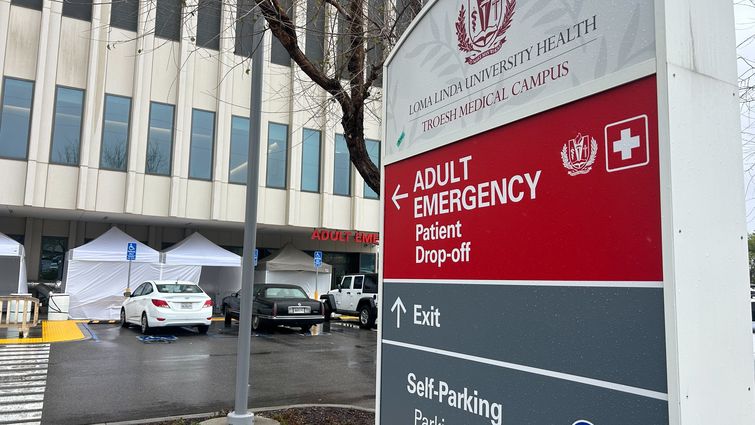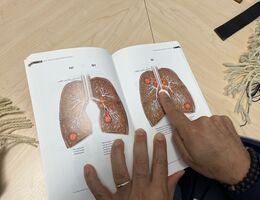

Emergency departments across the nation are overwhelmed with patients due to the quad-demic
As cases of COVID-19, influenza, RSV, and norovirus surge, hospitals are struggling to keep up with the influx of sick patients. With emergency departments overwhelmed, it’s important to know how to manage symptoms at home, when to seek medical care, and how to prevent the spreading of illness to others.
Richelle Guererro-Wooley, MD, an internal medicine and infectious disease specialist, talks about addressing symptoms at home and knowing when it's time to go to urgent care or the emergency department.
What to do if you’re sick
If you're feeling unwell, Guererro-Wooley says staying home from work or school is the best way to prevent spreading illness. For respiratory symptoms like coughing or sneezing, always cover your mouth, wash your hands frequently, and if you must go out, wear a mask in public. For vomiting or diarrhea, she recommends sticking to one bathroom at home if possible and sanitizing surfaces regularly.
When to seek medical care
For mild symptoms, staying home and resting is the best course of action. If you have a chronic illness, contact your primary care provider to discuss telehealth options or obtain a prescription for antiviral treatment for COVID-19 or the flu.
For persistent illness, Guerrero-Wooley says to seek medical attention if you experience:
-
Worsening shortness of breath
-
A fever lasting more than four days
-
Vomiting and diarrhea beyond 24 hours, especially if you can’t keep fluids down
In these cases, visiting an urgent care clinic or emergency department may be necessary.
How the quad-demic is impacting hospitals
With the rise of these four viruses, hospitals are at capacity, leading to crowded emergency rooms, longer than normal wait times, and delays in care. If your symptoms are mild, staying home helps ease the burden on the healthcare system, especially since most mild illnesses resolve on their own.
However, Guerrero-Wooley emphasizes that lingering coughs and congestion can last for weeks after an illness, but if you’re otherwise feeling fine, there’s no need to rush to the emergency department.
By taking precautions and making informed healthcare decisions, we can all do our part to reduce the spread and ease the strain on hospitals.
Consider a Video Visit
Many symptoms can be evaluated virtually, which minimizes the risk of spreading illness to others and helps avoid wait times in a clinic. Check if your provider offers video visits here.
Need to see a provider in person but not sure where to go? Here is your guide to help you quickly find which service is right for your situation: Know Where to Go


